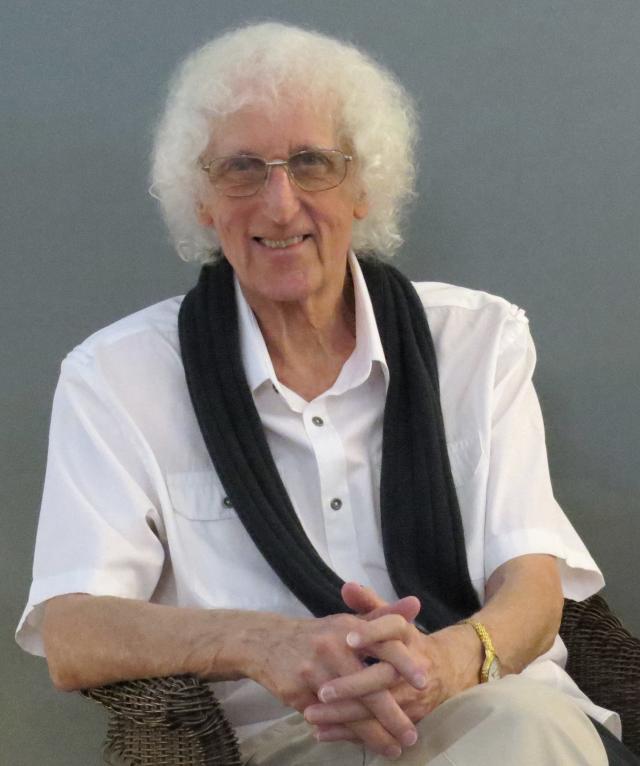They were doomed from the very beginning.
During the Second World War, it didn’t take long for the British Secret Services to discover that Nazi Germany’s cohorts of espionage agents — influenced either by the illusionary light of profit or idealism, or the darkness of blackmail and reprisals — were largely comprised of amateurs so grossly inefficient it seemed almost a shame to hang them.
Softly Softly — Capturing Hitler’s Spies by Wide Bay author Tony Matthews, tells the dramatic stories of some of Nazi Germany’s so-called espionage agents whose training and credentials as spies were so pathetic that it was virtually inevitable they be caught.
There is little doubt that the history of German Intelligence activities during the Second World War, especially in relation to those activities that took place against the United Kingdom, were disastrous for Hitler. During the long years of war, few espionage successes were achieved and most were abject failures. One after another, in a long line of deceit, treachery and incompetence, agents sent to England, or their handlers, were captured, betrayed or ‘turned’. This is the story of just a few of those failures, men who, for one reason or another, placed their lives on the line to leave the Continent, cross the English Channel, and take their chances in a particularly dangerous and efficient enemy environment. Few could have the knowledge or skills to survive, nor would they realise until too late that they had been doomed from almost the beginning.
This book is based almost entirely on previously top secret MI5 documents during the war years. It focuses principally on the activities of five German espionage agents who went, or were deliberately infiltrated, into England, but who, for one reason or another, were captured and either executed or ‘turned’ under the ‘double-cross’ system. The final chapter also includes the activities of a German spymaster who controlled a huge network of agents across Europe, the Middle East and even into the USA. He would later be interned by the Turkish authorities and transferred for interrogation to England just at the end of the war. There, his information on German espionage and counter-espionage during the whole of the conflict, and the operations of various spy-rings, became invaluable, both to the American and British secret services, at a time when the world was about to descend into the dark years of Soviet oppression and cold war.
Why did you decide to write a book that’s particularly about the failures of German espionage during the Second World War?
There was a kind of juxtaposition at play in my mind when I conceived this book, largely because espionage has changed so dramatically since those days. Today, spying is principally about electronic surveillance, but during the years of the Second World War, espionage was very much a matter of ‘boots on the ground’. These more traditional methods were always far more prone to human error, but it wasn’t always the actual spies at fault. I wanted to explore how much the overall German espionage organisation was to blame for the many failures of its spies, and the ramifications of those failures on the lives, and sometimes the untimely deaths, of the secret agents involved.
Was the German espionage system well developed and organised?
In some cases it was, and there were many highly intelligent officers in command of the Abwehr (the German Military Secret Service), but sadly for the Germans, like so many of the Nazi systems of military control and organisation, the entire operation relied on activities that were not exactly beyond reproach. Potential spies were often coerced into working for the Germans, by blackmail, for example, their families were frequently threatened, and such coercion rarely, if ever, produced effective agents. Some German spies were threatened with detention at concentration camps if they refused to act as agents. Generally speaking, German spies during the war lacked talent, were poorly trained and rarely had any real motivation or enthusiasm for their work.
Did the Germans learn from their mistakes as the war progressed?
The German espionage apparatchik certainly tried to learn from its mistakes, and during the first few years its senior officers and spymasters made considerable improvements, but as the war progressed it became obvious, particularly to counter-espionage organisations in the UK and USA, that the German espionage system, principally the Abwehr, was making the kind of mistakes that bordered either on lunacy or gross incompetence.
One senior counter-espionage officer at MI5 described the German intelligence system as being steeped in ‘stupid complacency’.
That was not only the fault of the German spymasters, it also had a lot to do with the war which was progressing badly for them. It was, additionally, the fault of the Germans’ internal military politics which meant that some organisations such as the Abwehr, for example, would be subsumed into even more radical Nazi organisations, and this left some of the spymasters and their agents in a difficult position.
What kind of measures were in place in England, for example, to catch German spies?
To put it briefly, even as the war was beginning in 1939, the British began expanding their counter-espionage capabilities dramatically, and they did so by recruiting a large number of well educated, experienced and extremely capable officers who were dedicated to the task of unmasking and prosecuting German spies. Many of these men and women had never before been involved in counter-espionage, but they were fast-learners and soon proved their effectiveness.
What kind of operations were set in place to catch these German spies?
Every adult person who entered the UK during the war had to undergo some form of formal interrogation. This began at the various immigration centres including ports and airports where specialist military officers were the first line of defence against German spies. After an initial interrogation many of these people were sent to London for further questioning, and it was here, generally speaking, that the principal counter-espionage techniques were employed. Suspects from here were taken for intensive interrogation to another secret camp, also in London, where they were subjected to a range of interrogation techniques designed to break down their stories. Few spies, if any, managed to get through this system without being detected.
You write in your book that some of these people may have been innocent but were actually charged and convicted of treason under the Treachery Act of 1940. How did that occur?
I do point out in the book that at least one of the spies to land in England, who claimed to have agreed to being recruited by the Abwehr to act as an agent, almost certainly came simply to escape from Nazi Germany. It’s an interesting case because British Intelligence felt that they had to withhold certain information, for the sake of national security, and in withholding that information, the agent involved was subsequently found guilty ‘beyond reasonable doubt’ and executed. The information withheld would have established a strong element of doubt into the case which, by law, should then have resulted in his acquittal.
How widespread was the German Intelligence network during the war?
It was quite vast. Germany had spies and their handlers just about everywhere. There were particular concentrations in mainland Europe, of course, but also in the USA, South America, Africa, and even in the Far East. There were certain hubs of espionage which included Belgium, then under Nazi control, of course, but a great launching pad for espionage activities against Britain, also existed in Spain, Portugal and Sweden, all neutral countries, where agents from Britain, the USA, Canada, the Soviet Union, and elsewhere, rubbed shoulders regularly with German agents and their controllers.
Having been caught, what kind of penalties could the German agents face?
Britain introduced the Treachery Act in 1940 specifically to deal with this very issue and the death penalty was mandated for those convicted of espionage, no matter what their nationality. The death penalty could be appealed but such an appeal was successful on only one occasion. The USA too was not in the least reticent in executing spies or saboteurs during the war, as may be seen following the capture of eight German saboteurs who formed what became known as Operation Pastorius. Two of those agents were simply imprisoned, having squealed on their fellow operators, but the remainder very quickly found themselves strapped to the electric chair in Washington, DC. Details of that particular case may be found in another of my books: Spies, Saboteurs and Secret Missions of WW2.
What other types of espionage did the Germans carry out during the war?
Even then, there was quite a lot of electronic surveillance. The Germans frequently recruited people with language skills to listen to radio broadcasts in places such as England, America and the USSR. Information gleaned from this type of surveillance was subsequently analysed and passed to the relevant departments for action or information.
Were there ever any real successes for the German Intelligence system?
Of course, there were probably many, and some were particularly successful especially in the Scandinavian countries against resistance movements, but largely speaking most of the German attempts to infiltrate spies into Allied countries or areas of operations were either only partially successful or abject failures. The British were especially successful in ‘turning’ spies, into double agents, feeding masses of disinformation back to the Germans in what was known as the XX or double-cross system, and this was especially beneficial to the British. The Germans believed that they had these marvellous spies operating in the UK and were sending them all kinds of support, especially financial support, but the money just went into helping the British with their war efforts.
Softly Softly — Capturing Hitler’s Spies by Tony Matthews has been published by Big Sky Publishing and is available from your favourite book retailer; Booktopia; Dymocks; QBD Books; Big W; Readings & Amazon and on the publisher’s website at bigskypublishing.com.au









